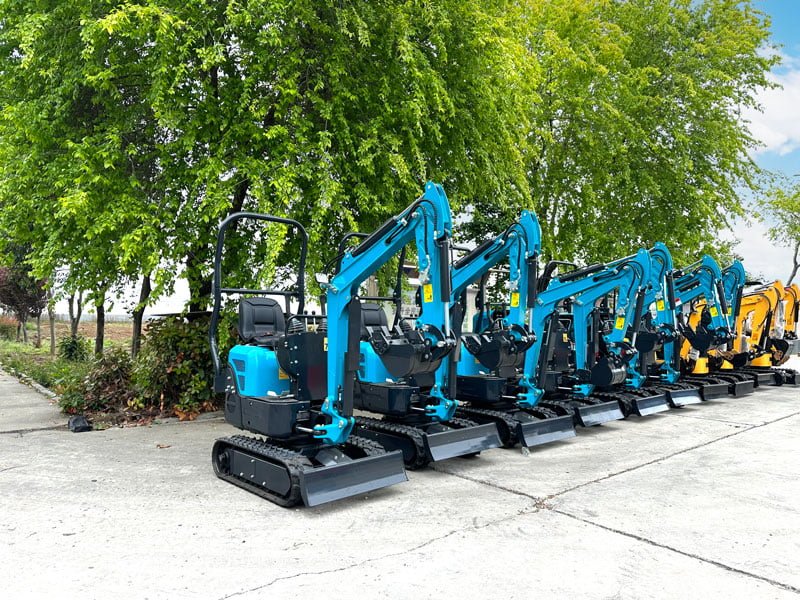Welcome to My Blog!
Before we dive into the content, I’d love for you to join me on my social media platforms where I share more insights, engage with the community, and post updates. Here’s how you can connect with me:
Facebook: https://www.facebook.com/profile.php?id=100072217509763
LinkedIn: https://www.linkedin.com/company/74949059/admin/dashboard/
YouTube:https://www.youtube.com/@tractormanufacturer-lc5qz
TikTok: https://www.tiktok.com/@tractormanufacturer
Now, let’s get started on our journey together. I hope you find the content here insightful, engaging, and valuable.
Introduction
In the evolving landscape of modern agriculture, the agricultural excavator stands out as a pivotal tool for enhancing operational efficiency and reducing labor costs. These versatile machines are tailored to meet the specific needs of the agricultural sector, offering a range of capabilities from land clearing and irrigation trenching to planting and general maintenance. This comprehensive guide will delve into the advantages, types, and essential considerations when selecting the perfect agricultural excavator for your farming needs.
Why Farmers Need an Agricultural Excavator

Agricultural excavators bring numerous benefits to the farming industry, enabling more efficient land management and cultivation. The primary advantages include:
- Increased Efficiency: Streamline various farming operations, such as digging irrigation channels or removing stumps, which would otherwise require significant manual labor and time.
- Versatility: Equipped with various attachments, agricultural excavators can perform multiple tasks, from earthmoving and grading to lifting and cutting.
- Cost-Effectiveness: Although the initial investment might be significant, the long-term savings in terms of time and labor can be substantial.
Key Features to Consider When Choosing an Agricultural Excavator
Selecting the right agricultural excavator involves understanding the specific features that align with your agricultural needs. Here are the key features to consider:
Size and Power
The size and power of the excavator should match the scale of your farming operations. Larger farms might require more powerful machines with greater reach and digging depth, while smaller plots could benefit from the agility of a compact excavator.
Attachments
The versatility of an agricultural excavator is largely determined by the attachments it supports. Common attachments include buckets, augers, rippers, and brush cutters. Ensure the excavator’s hydraulic system can accommodate the attachments you need.
Ease of Operation
Modern agricultural excavators come with various features designed to enhance ease of use, such as advanced hydraulic systems for smooth operation and digital controls for precise handling.
Maintenance and Durability
Consider the maintenance requirements and the durability of the excavator. Machines designed specifically for agricultural use are built to withstand harsh farming environments and require less frequent repairs.
Applications of Agricultural Excavators in Farm Management
Agricultural excavators can be utilized in a variety of farm management tasks. Some of the most common applications include:
- Land Clearing: Removing old structures, stumps, and other obstacles to prepare land for planting.
- Irrigation Management: Digging trenches for irrigation systems and maintaining existing channels to ensure optimal water distribution.
- Planting: Some specialized excavators can assist in planting large areas more efficiently than manual methods.
- General Maintenance: Regular upkeep of farm roads, ditches, and fences.
Table of Popular Agricultural Excavator Models
Here’s a comparative look at some popular agricultural excavator models, highlighting their specifications and suitability for various tasks:
| Model | Engine Power | Max Digging Depth | Notable Features |
|---|---|---|---|
| John Deere 50G | 35.9 HP | 11.6 ft | Compact size, suitable for small to medium farms |
| Caterpillar 305.5E2 CR | 44.1 HP | 12.9 ft | High efficiency, robust design for larger tasks |
| Kubota KX040-4 | 40.9 HP | 11.3 ft | Excellent maneuverability, auto-shift feature |
| Qilu QL35T | 36 HP | 9.2 ft | Durable build, designed specifically for agriculture |
| Bobcat E85 | 59.4 HP | 15.6 ft | Powerful engine, minimal tail swing |
Choosing the Right Agricultural Excavator for Your Farm

When selecting an agricultural excavator, consider the specific needs of your farm:
Assess Your Farm’s Requirements
Identify the primary tasks you need the excavator to perform and the size of your property. This assessment helps determine the required size and power of the excavator.
Consider Your Budget
Balance the cost of the excavator against the expected benefits in terms of increased productivity and reduced labor costs.
Test Different Models
If possible, test different models to get a feel for their operation and effectiveness. Dealer demonstrations can provide valuable insights into the performance of various excavators.
Consult with Experts
Speak with other farmers who use excavators and consult with sales representatives to understand the pros and cons of different models and brands.
Conclusion
The agricultural excavator is an invaluable asset for modern farming, providing the strength, versatility, and efficiency required to manage a successful farm. By carefully selecting the right model based on the specific needs of your operations, you can ensure that your investment significantly enhances your agricultural productivity.
FAQ
What is the average lifespan of an agricultural excavator?
Agricultural excavators typically last for thousands of operating hours with proper maintenance. Lifespan depends on usage intensity and adherence to maintenance schedules.
Are there financing options available for purchasing agricultural excavators?
Yes, many dealers and manufacturers offer financing options to help farmers acquire agricultural excavators without a significant upfront cost.
Can agricultural excavators be used in all weather conditions?
Most agricultural excavators are designed to operate in various weather conditions, but it’s essential to check the manufacturer’s guidelines and ensure proper maintenance to avoid damage from extreme conditions.
What safety measures should be taken when operating an agricultural excavator?
Operators should receive proper training, use safety gear, and follow operational guidelines to ensure safety when using an agricultural excavator.
How often should an agricultural excavator be serviced?
Service intervals depend on the model and manufacturer but generally involve regular checks and maintenance every few hundred operating hours to ensure optimal performance and longevity.




